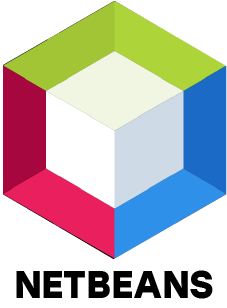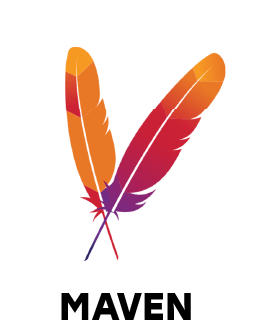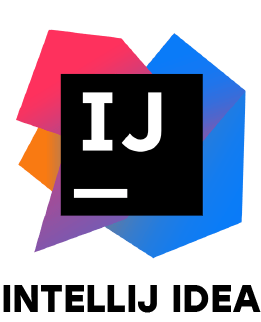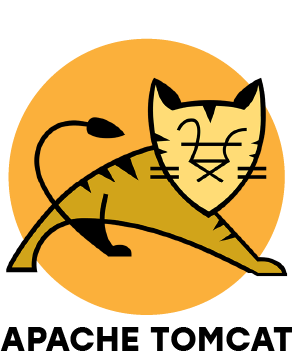Our Core Java Training in the metropolitan students concerning Java Programming thoughts without any preparation to relate middle of the road level, with an esteemed, recognized Oracle qualification and through reasonable models, to make you meet all requirements for a Java Developer job. Mostly practice apathetically and help. Java Certification Training in Mysore can furnish you with the professional information of its high-level functionalities like administrators, clusters, circles, techniques, and constructors by providing you with dynamic applications in JDBC and JUnit system, and so on At our foundations, we train experts for some programming dialects, including Java, with a record of effective individuals agitating who are prepared to show the language. We give the best strategy and plan that will prepare you profoundly. We help you to get abilities fundamental for the advancement of superior applications for different android web administrations.
Additional Info
What is Java ?
Java might be a generally useful, class-based, object-situated programming language intended for having lesser execution conditions. A figuring stage for application advancement. Java is speedy, secure, and solid, thusly. Java applications in workstations, data focus, game control centers, logical supercomputers, mobile phones, and so forth.
This Java preparation is planned to direct you from introductive to cutting edge programming capacities through the essentials of Java. The Java course additionally offers you solid mastery in JDBC and JUnit structures, including the information on Core Java 8 activities, clusters, circles, techniques, and producers.
Roles and Responsibilities :
Planning, executing, and keeping up with Java applications that are normally high-volume and low-inactivity, required for crucial frameworks.
Conveying oppressiveness and execution Contributing through and through periods of the occasion lifecycle Writing all-around planned, proficient, and testable code Conducting code investigation, programming, testing, and troubleshooting.
Overseeing Java and Java applied science application advancement. Guaranteeing styles suits particulars Preparing and assembling arrivals of code components. Changing necessities into specifications, Supports consistent improvement. Examining options and advances. Introducing for subject survey.
Java Features :
- It is one of the simples to utilize programming dialects to discover.
- Compose code once and run it on almost any registering stage.
- Java is stage autonomous. A few projects created in one machine are dead in another machine.
- It is intended for building object-arranged applications.
- It is a multithreaded language with programmed memory on the board.
- It is made for the appropriate setting of the net.
- Works with appropriated figuring as its organization is driven.
Career path :
There are a few confirmations that a Java Developer will get. These guarantee every Java language capability and jobs and obligations. For those individuals with professional pathing in Java improvement, affirmations are a crucial unit.
Prophet offers an assortment of ways for Java designers to propel their vocations through accreditation and training. Course is designated around application improvement and the essentials of the program plan.
Benefits of Java Course:
Java-based applications are heavenly for their speed and quantifiability. Java's practical cycle speeds are used in the bundle, PC games, and versatile applications. (For sure, Java is the fake language of an option for mechanical men). Java could be a statically typewritten language with the goal that it brings away a greater level of wellbeing and security to its projects contrasted with elective far and wide dialects.
This security and soundness could be a need for firms that need significant data measures in their bundle and apps. No ability lack.
New developers commonly start learning Java ahead of schedule because it's easy to interfere with, even though it will require some investment to dominate. On account of its straightforward use, this square estimates a few Java engineers for firms to lease.
Frameworks of Java Certification Training :
- Struts :
Apache Struts is another solid ASCII text record system for web applications. It follows the MVC (Model-View-Controller) model and expands the JSP API. In an exceptionally antiquated servlet-JSP approach if a client presents suppose a sort alongside his subtleties, the information then, at that point goes to a servlet for a measure or the administration heads toward the following JSP (Java Server Pages – any place you'll have the option to compose Java code in partner HTML). This becomes a mistake for convoluted applications because the 'View' or show layer should in a perfect world not have a business rationale.
Swaggers separate the read, Controller, and Model (information) and give the limiting between each through a setup document swaggers config.xml. The regulator is related with ActionServlet any place you'll have the option to compose formats for the read and the client data is kept up with by the ActionForm JavaBean. The Action object is responsible for sending the applying stream.
- Hibernate :
However Hibernate is anything but a full-stack structure, it completely adjusted the means we will in general look at the data. Execution of Java Persistence API (JPA), Hibernate is partner Object-Relational-Mapping (ORM) information for Java applications. like SQL inquiries in Hibernate are alluded to as HQL (Hibernate question Language).
Rest straightforwardly maps Java classes to comparing data tables and the opposite way around. The principle essence of rest is that the hibernate.cfg.xml record contains information in regards to planning Java classifications with data design.
- Apache Wicket :
On the off chance that you have as of now worked with JSP, the instructive wicket is a cakewalk. clear Java web systems, Wicket contains a part situated construction and everybody you might want to comprehend is Java and hypertext markup language. completely no XMLs or arrangement records!
The primary component of Wicket is its POJO model whereby components are direct (Plain Old) Java Objects having OOP choices. These components are packaged along as reusable bundles with pictures, buttons, structures, joins, pages, compartments, practices, and a ton of so designers will redo them.
Skills Required For Java :
- See once memory is being allocated, from what setting, and how it influences stack discontinuity.
- Information concentrated applications, particularly, use libraries that need monster coterminous spaces of the store. Unreasonable discontinuity will cause Out Of Memory mistakes once designating these goliath objects.
- Stringing local items high on the stack square measure is for the most part, not a need. Globals and items low on a string's stack, especially inconsistent articles, square measure a need.
- Be at home with the various junk assortment calculations, and the best approach to utilize the profilers.
- GC stops will kill idleness delicate applications (administrations and laborers).
- The G1 authority might be a strong determination for some uses of this sort anyway isn't constantly best – especially for little administrations that wind up being heavier on memory use than initially expected.
- Think about reserve lucidness and fence bearings.
- This is the 'unpredictable catchphrase in Java. Not taking advantage of it (where proper) brings about refined bugs.
- Assuming there's one creator, this can be quite easy. Use LongAdder any place pertinent (commutativity possibly a companion).
- Comprehend string pools.
- JSF(Java Server Faces) :
Try not to mistake JSF for JSP, that is just a text record that might have static and dynamic substance. JSF is created by Oracle as a locale of the Java Enterprise Edition seven.
It is a part-based MVC system and has reusable UI components for worker-based applications. The best arrangement is to epitomize changed customer side innovations like CSS, JavaScript, and hypertext markup language which will empower engineers to make UI while not knowing any of those advancements top to bottom. they'll just relocate UI components and spotlight a ton on their show layer particulars.
- Dropwizard :
Another Java system steadfast its name – wizard. This lightweight system permits you to finish your application in the blink of an eye because of its out-of-the-crate support for cutting edge arrangements, logging, application measurements, and for a great deal of. you'll have the option to deliver calm web applications that give superior, are steady, and are solid.
Dropwizard is particularly supernatural as a result of it brings along several libraries like a barrier, Guava, Jersey, Jackson, and Metrics amongst several others from the Java system into one framework and offers you a lightweight and lean application.
- Grails :
Grails is straightforward to be told, a full-stack framework a lot appropriate for those that are simply starting their programming career. whereas Grails could be an internet framework written in Groovy programming language, it runs on the Java platform and is compatible with Java syntax. This framework is predicated on the MVC style pattern.
Dropwizard is especially extraordinary because it brings along a few libraries like a boundary, Guava, Jersey, Jackson, and Metrics among a few others from the Java framework into one structure and offers you a lightweight and lean application.
- ATG :
ATG could be a web business stage written in Java. it's an adaptable and configurable system, prominently accommodating for sites related to internet business. The product is close to Oracle and supports each B2B and B2C application that are muddled and huge. for little scope applications, it could be costly, in any case. In case you're going in creating web-based business sites, ATG could be a reasonable structure to be told and can improve your specialized further as area data.
- Play :
The play could be a somewhat ordinary and unmistakable type of system that follows the methodology of the show over setup. It upholds the MVC design related to an ASCII text document web application system. aside from Java, you'll have the option to compose Play web applications in Scala.
- Apache Hadoop :
However Apache Hadoop is not a full-stack system, it gives a bundle structure and deals with the MapReduce programming model. These utilities will essentially deal with gigantic volumes of data (Big Data), store, dissect, and strategy them to supply faster and a lot of conservative outcomes.
I have encased Hadoop during this rundown because of its 'thing' these days with immense data acquiring noticeable quality.
What will a Java developer do ?
A Java Developer is responsible for the arranging, improvement, and the board of Java-based applications. Because Java is being utilized subsequently generally, remarkably by monstrous associations, the day-by-day jobs exceptionally wide, notwithstanding, will embrace claiming a particular application or working on numerous at only one event.
Payscale :
A passage-level Java Developer with however one year of mastery will hope to procure a mean all-out pay (incorporates tips, reward, and extra time pay) of 344K upheld 37 compensations. Partner early vocation Java Developer with 1-4 years of skill procures a mean absolute pay of 492K upheld 297 compensations. A mid-vocation Java Developer with 5-9 years of skill procures a mean absolute pay of 967K upheld 101 compensation. Partner experienced Java Developer with 10-19 years of ability acquires a mean complete remuneration of 130K upheld eighteen compensations.







































